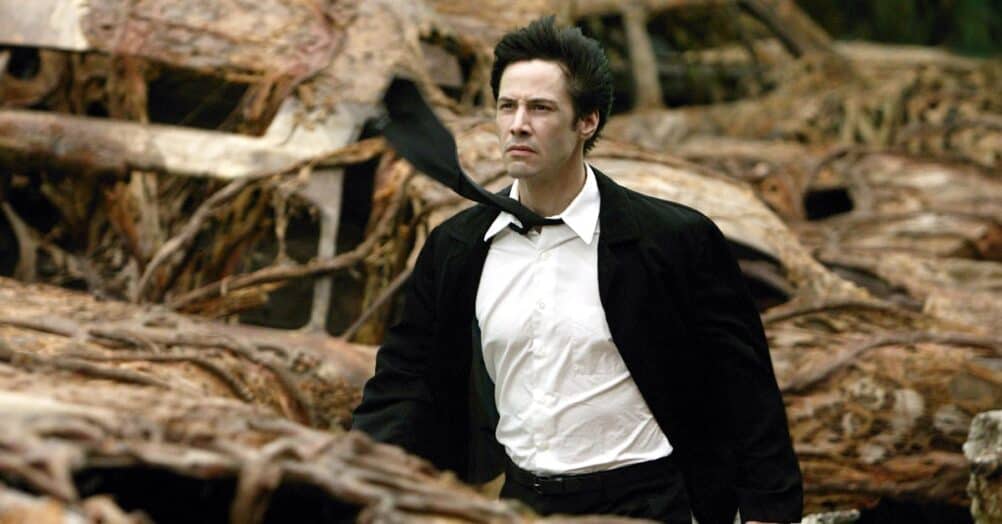Last Updated on August 2, 2021

PLOT: The story of Seymour "Swede" Levov (Ewan McGregor), a former golden-boy athlete, whose picturesque life is ruined when his activist daughter (Dakota Fanning) participates in a political act of terrorism.
REVIEW: Despite the works of Philip Roth being notoriously difficult to translate to film, the author still casts a spell over Hollywood, with this year alone seeing not one, but two directorial debuts based on his work. While James Schamus’s INDIGNATION wound-up being one of the better Roth adaptations, it benefited greatly from the guiding hand of a director who, before making his debut, had a long career as a writer and producer. By contrast, Ewan McGregor’s AMERICAN PASTORAL is far less assured. It feels very much like an actor’s attempt to be taken ultra-seriously as a director. While technically polished, it lacks a strong take on the material which would have allowed it to transcend its literary origins, and the resulting film is a tough watch despite the odd moment of inspiration.

McGregor himself plays Levov, a Jewish former track-star who’s parlayed his good looks into a marriage to a non-Jewish former beauty-queen (Jennifer Connelly), in turn producing a blonde-haired, blue-eyed daughter (Dakota Fanning), with them setting up house on a farm in conservative upstate New York. Basically, he’s living the ideal fifties American dream, with his dad’s leather glove factory providing a rich income, and his family’s WASP-y looks deflecting the possible anti-Semitism of his neighbors.
Roth being Roth, we’re shown early-on that Levov’s life is only perfect on the surface. His daughter has a bad stutter which, characters argue, suggests a brain that’s too quick to catch-up with her mouth. She also seems fixated on her father, as shown by an excruciatingly uncomfortable scene where the daughter asks her father to kiss her. His wife hides her discontent, only to utterly fall to pieces once the illusion comes crashing down, while even his factory exists on the cheap labor of his black employees, who are in the process of fighting for their civil rights.
In the midst of all this, we’re expected to see the ruin of Swede’s privileged life as a tragedy, but despite his boy-scout like optimism and good manners, he’s hard to ever really relate to as you could in the page. His family doesn’t fare any better, with Connelly’s breakdown coming out of nowhere. Fanning fares best, which is saying something as she’s playing an impossible role; with her Merry insufferable in her proclaimed justification of her actions (the group she’s affiliated with seems based on The Weather Underground). Still, her performance is very good and she’s navigated the transition from child star to leading lady remarkably well.

As uneven as the film is, McGregor’s attracted one hell of a cast, with David Strathairn narrating as Roth’s frequent alter-ego Nathan Zuckerman, and Peter Riegert stealing every scene as the Swede’s old-school, acid-tongued father. “Orange is the New Black’s” Uzo Aduba also has a nice part as Swede’s loyal secretary, who gives him a shoulder to cry on but also fights her own battles in the streets every night, something her employer seems blind to. The score by Alexandre Desplat is well-up to his usual standards, but the choice of period songs is a little too predictable. How many times has Buffalo Springfield’s “For What It’s Worth” conveyed someone’s changing political consciousness on-screen?
Even if it’s uneven and sometimes dull, McGregor is not without talent behind the camera. It just feels like he’s bitten-off a bit more than he could chew here, but far more accomplished directors have mangled Roth a lot worse than he did, so there’s really no shame. AMERICAN PASTORAL may wind-up an interesting footnote in his career, and I wouldn’t be surprised if his next directorial effort is something significantly better as there’s enough here to suggest some real potential behind the camera.

































Follow the JOBLO MOVIE NETWORK
Follow us on YOUTUBE
Follow ARROW IN THE HEAD
Follow AITH on YOUTUBE